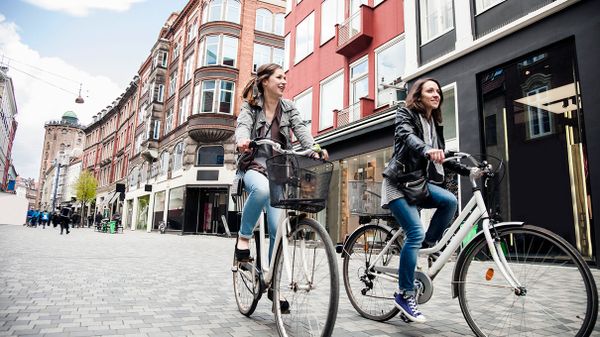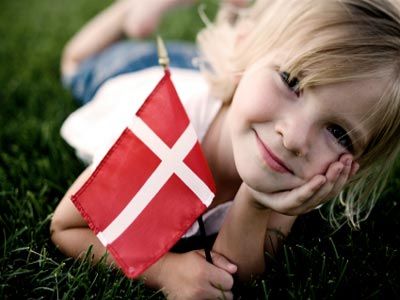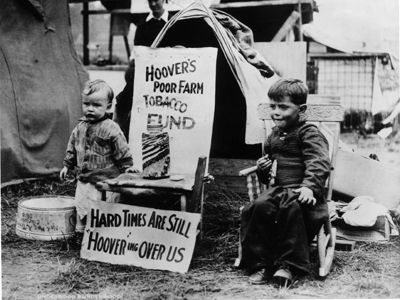
Those Nordic countries have done it again. According to the 2018 World Happiness Report, Finland is the "Happiest Country in the World," making it a Nordic clean sweep five out of the past six World Happiness Reports (Switzerland stole the top spot in 2015). Coming in second is last year's champ, Norway, followed by Denmark and Iceland.
With their dominance of the happiness rankings, the Nordic countries have the rest of the world wondering if the recipe for true happiness involves an obsession with cured fish and creative wood-stacking.
Advertisement
But a closer look at the methodology behind the World Happiness Report reveals an interesting anomaly. Depending on which survey questions you weigh higher on the happiness scale, the Finns and Danes may not actually be the happiest people on the planet. Instead, that distinction might very well belong to Colombia, El Salvador and other relatively poor Latin American countries.
But how could Colombia, which ranks 37th on this year's World Happiness Report, be the real winner? The answer is that there are two distinct ways of gauging happiness.
The World Happiness Report relies on data from the Gallup World Poll, a massive survey of 160 countries in 140 languages covering topics from government corruption to job security to LGBTQ rights. (The most recent report covers data from 2015-2017). The section of the Gallup World Poll that asks people questions about their personal well-being includes 12 questions that are designed to elicit two very different kinds of answers about happiness.
Jon Clifton is a global managing partner at Gallup and remembers when the Gallup World Poll was first conceived in 2005. He says that the survey design team consulted with some top minds — including the Nobel Prize-winners Daniel Kahneman, psychologist, and economist Angus Deaton — and decided to include two different types of happiness questions in the poll: one that's an overall "life evaluation" from zero to 10, and another that focuses on the emotional experiences of daily life.
"We did it very intentionally," says Clifton. "The way we defined well-being, or what makes a great life, is how people live their life and how they see their life. So, we needed metrics for each of them."
The life evaluation question, also known as "Cantril's Ladder," goes like this: "Please imagine a ladder, with steps numbered from 0 at the bottom to 10 at the top. The top of the ladder represents the best possible life for you and the bottom of the ladder represents the worst possible life for you. On which step of the ladder would you say you personally feel you stand at this time?"
What's interesting about this question is that people's responses track closely with income level. The more money you have, the more likely you are to say that your life is an eight or a nine on the ladder. Clifton thinks this is because the question is essentially asking, are you satisfied with your life?
"When we're asking people to reflect on their life in its totality, they're thinking about basic needs, whether or not they're able to meet or exceed basic needs," says Clifton. "And one of the easiest ways to do that is with money."
The World Happiness Report, which routinely ranks wealthy Nordic countries as the happiest, relies almost exclusively on people's responses to the ladder question. Beyond higher incomes, Nordic countries also rank high on other metrics that the World Happiness Report equates with well-being: freedom, trust of the government, long life expectancy, social support and generosity.
But what about the second type of happiness question, the one based on emotions and daily life experience? In addition to the ladder question, the Gallup World Poll poses a series of "yesterday" questions, asking people if they experienced specific positive and negative emotions during the previous day: things like smiling and laughter, respect, enjoyment, worry, sadness and anger.
If you equate happiness with high levels of positive daily experiences and emotions, then several surprising countries come out on top, according to Gallup data from 2017: Colombia, El Salvador and Guatemala. In fact, of the 10 countries that rank highest in Gallup's "positive experience index," seven are from Latin America. The only Nordic country to make the cut is Iceland at No. 8.
So the question is, which is the more accurate assessment of happiness, the ladder question that favors Nordic countries or the experience questions that favor Latin American countries and which Gallup uses in its own Global Emotions Report?
Clifton from Gallup says that both are useful. In his opinion, the ladder question is the best indicator for policymakers who want a big-picture metric of how a country is doing in general, whether its people are struggling or thriving. In that way, the World Happiness Report gets it right.
The problem with the World Happiness Report is that what they're gauging is probably closer to well-being than actual happiness. To really zero in on the complex emotional state of happiness, Clifton says, he prefers the "yesterday" responses. But it's probably too late to change the name of the World Happiness Report to the World Well-Being Report. And frankly, who would want to? The former title is catchier.
"The World Happiness Report is one of the most, if not the most-watched indexes in the world," says Clifton. "You can ask anyone on the street who is the happiest country in the world and they'll tell you it's Finland or Norway, because they saw a headline in The Economist."
The World Happiness Report hasn't ignored the Latin American happiness paradox. The 2018 version includes a special section on happiness in Latin America. It notes that there is a "reasonable" provision of public goods in the region as well as adequate health and education services. The strong social connections and close family relationships provide very high levels of emotional happiness. However, the high rates of crime, corruption and poverty in many Latin American countries cause them to lose points on a "well-being" scale.
Advertisement


